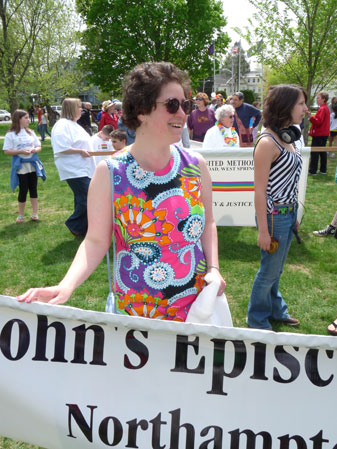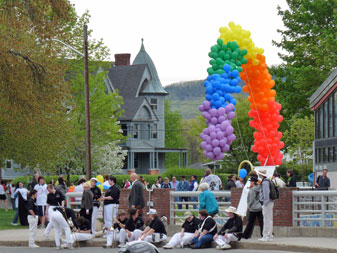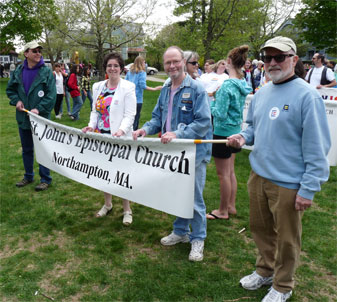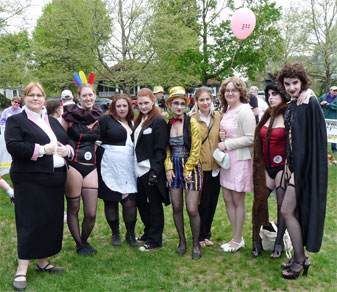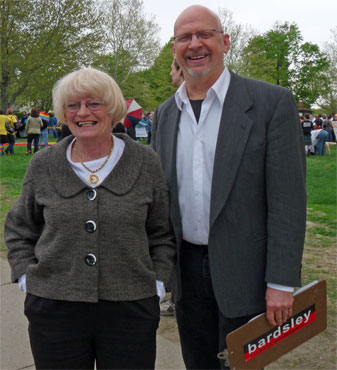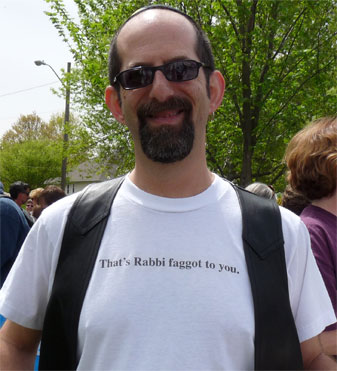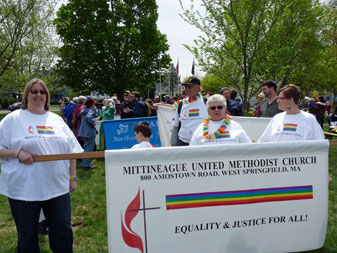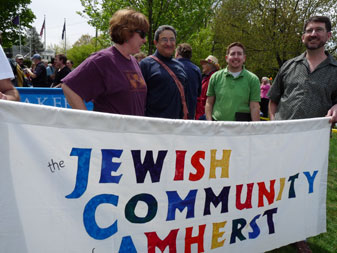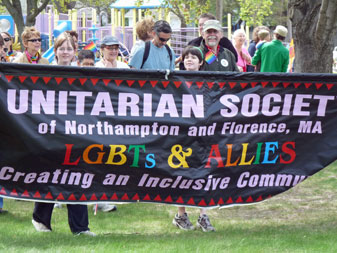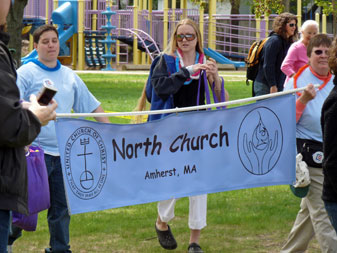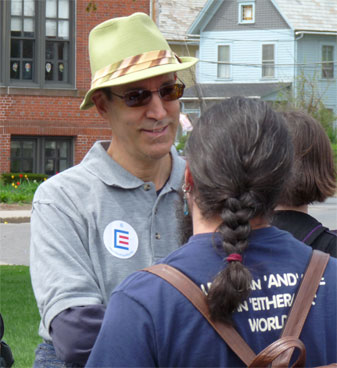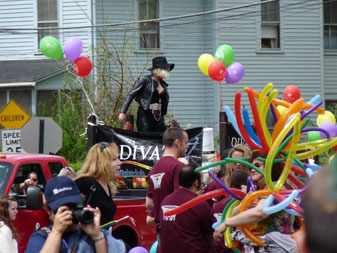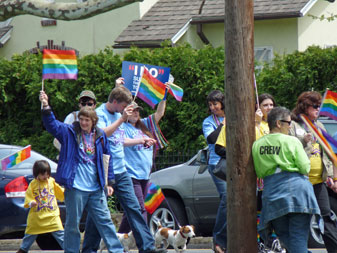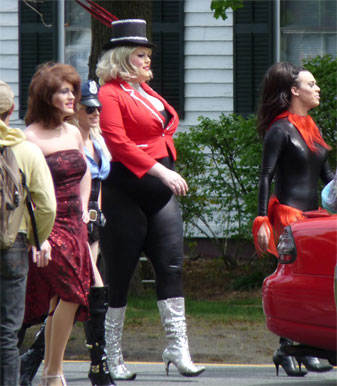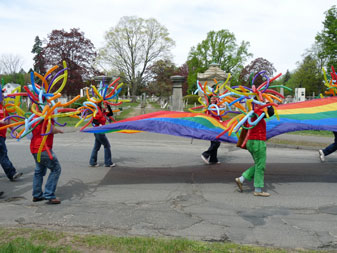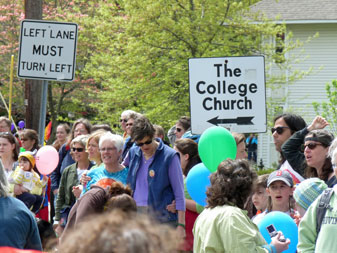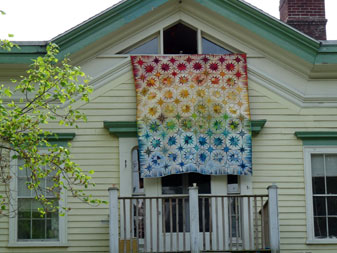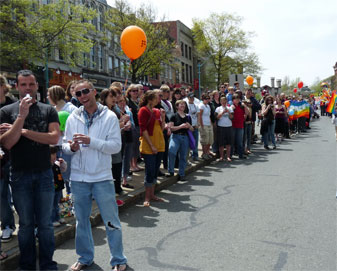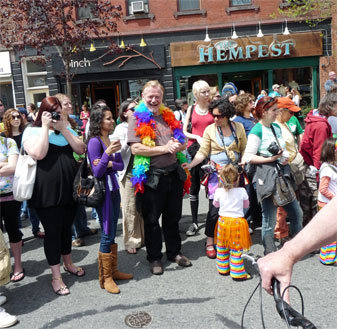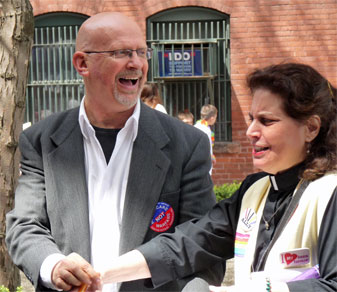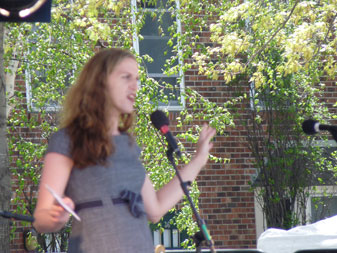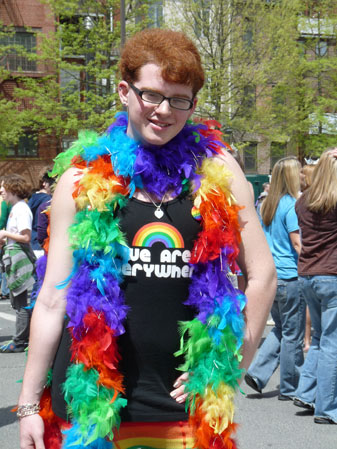In a new article on the Relevant Magazine website, The Church and Domestic Abuse, reporter Lyz Lenz describes in chilling detail how conservative churches keep women in abusive relationships. Citing the sanctity of marriage, women’s duty to submit to their husbands, or the general Christian obligation to forgive wrongdoing, these faith communities wholly ignore the power imbalances that were the primary focus of Jesus’ own moral teachings. Lenz writes:
I can’t tell you her name or how I know her. This is because she is still living with her husband despite years of emotional and physical abuse. He’s cheated on her and cleaned out their bank account to spend on drugs, pornography and online gambling. She left him briefly after a young girl accused her husband of molestation, but she went back to him after a week. Why? I asked her.
She told me that a woman spoke at their church a couple weeks before. The speaker explained how her husband used to be violent, but she didn’t leave him because she knew that God’s plan for a marriage was that it should last forever. Once, the husband’s violence put their baby in the hospital. When he saw what he’d done, he repented and was never violent again.
“That’s why I went back,” the woman told me. “What if it doesn’t end?” I asked. But the woman didn’t answer. The conversation was over.
According to the Department of Justice, almost one-quarter of Americans were raped and/or physically assaulted by a current or former spouse, cohabiting partner or date at some time in their lifetime. Jocelyn Andersen, a Christian domestic violence survivor and author of Woman Submit! Christians & Domestic Violence, argues that the Church’s teachings on women and submission have given rise to an epidemic of domestic violence among Christians. In her book Quiverfull, journalist Kathryn Joyce argues that the Christian belief system, which focuses on women’s submission and the headship of men, encourages the abuse of women. In his book Domestic Violence, What Every Pastor Needs to Know, Al Miles reveals that the theological training and beliefs given most clergy can actually contribute to increased violence and abuse of the victim. Christianity, according to some, is the problem….
Later in the article, Lenz tells the story of a woman who was ostracized by her church for trying to divorce her abuser:
“I was raised in the church and fully intended on marrying someone who fully shared my faith,” says Lisa Van Allen, a licensed therapist and owner of Van Allen and Associates. “I went to a Bible school and came home and met the man who would be my husband at church. There was a total of three years from the time we started dating until we were married. ”
Not everything was perfect. Van Allen found out later that there were some people in the church who knew her husband had problems, but no one told her about them at the time. She says: “When it got closer to the wedding, I had some concerns. He struggled with intimacy. Anything with touch or opening up, he pulled away.” Van Allen took her concerns to her pastor who told her that they were just pre-wedding jitters and all the trouble would go away once they were married.
But it didn’t go away. “In the car on the way to the honeymoon, I knew I had made a horrible mistake,” she says. Her husband began to exhibit bizarre behavior on the honeymoon: He locked himself in the bathroom and ranted and raved in front of the mirror. When they got home, the physical abuse began. Again, Van Allen took her concerns to her pastor, and he told her she was nagging and henpecking. She talked to her pastor a third time he told her, “You go home and you obey your husband and everything will be fine.”
The violence escalated. At one point, he exploded and pushed her down the stairs. Van Allen tore a ligament and hurt her back. She told her parents who confronted her husband, but it didn’t help. “The way I was raised,” Lisa says, “divorce was never supposed to be an option.” Van Allen and her husband moved and went to a new church, but there she experienced the same accusations and stonewalling she endured at her previous church. “No one did anything,” she recalls. “Most of the time I was put down, I was told I was ‘pushy’ and not being ‘in submission.'” The violence escalated and Lisa reached out to a professor she was working with in graduate school. He got her husband into a drug trial and his personality improved. “Toward the end of the trial,” Van Allen says, “I went to the pastor and I told him how sick my husband was and how the drugs had helped, but that I knew he would go off them. I asked them for help and again, they blew me off, like they did before.”
Van Allen stayed in her marriage for 10 years because of the advice of her church. “It was hard for me,” she says. “I was raised to believe that pastors were second to God and that wives were supposed to be submissive and that divorce was not an option.” But that changed the night her husband tried to kill her. When her church found out that she had filed for divorce, they disciplined her. “They told me I could no longer serve. They told me I could come if I wanted, but I could only sit on the pew. I couldn’t sing anymore, I couldn’t play the piano, I couldn’t work with the kids. I was treated like a pariah.”
“Looking back,” Van Allen says, “what [the church] did to me was abuse. They used their power to control me—to not help me but to add to my pain.” After the divorce, Van Allen left the church and went on what she calls a spiritual journey, visiting and working with different churches. When her husband started stalking her, those churches provided refuge. Van Allen recalls once when her husband broke into her apartment; she fled to the Episcopal church she had only recently started attending. “The pastor there sheltered me and went with me to make sure my apartment was safe.”
Read the whole story here.
For good advice on the difference between healthy Christian forgiveness and submission to abuse, I recommend the book Don’t Forgive Too Soon by Dennis, Sheila and Matthew Linn, and the Boundaries book series by Henry Cloud and John Townsend.
“They tie up heavy, cumbersome loads and put them on other people’s shoulders, but they themselves are not willing to lift a finger to move them.” (Matthew 23:4, TNIV)
